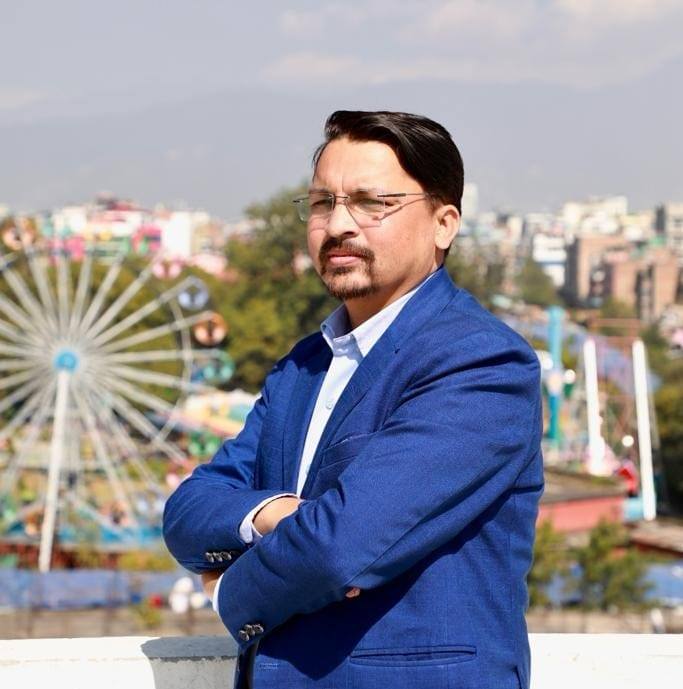

Tourism sector is increasingly recognized as one of the key drives for Nepal’s economic growth. It is one among the three pillars of country’s economy alongside energy and agriculture.
Participants in the Hotelier Summit held last Friday univocally noted that radical changes could be achieved in the national economy through the development of tourism sector.
In the Summit organized by the Capital Nepal business magazine, the speakers, comprising officials from government agencies, industrialists, tourism enterprise and policymaking dubbed tourism as a vehicle to drive country towards economic prosperity.
Parliamentarian and industrialist Binod Chaudhary acknowledged tourism that it could facelift Nepal for good. Highlighting this sector’s transformative potential, Chaudhary asserted, “Tourism and hotel industry should be highly prioritized to catalyze significant economic growth.”
He underscored the development of hotel infrastructures on par the international standards to attract more foreign tourists. He opined that hotels reflecting uniqueness of culture and interior design in Nepal could lure millions of tourists to Nepal that, as he argued, was growing as a global tourist hotspot lately. Unrivalled natural scene, geographical diversity and rich cultural, historical and religious heritages are essential pull factors in Nepal.
It may be noted that Nepal had welcomed 1.2 million foreign tourists prior to COVID-19 pandemic. The government aims to receive over 1.6 million foreign tourists in the ongoing fiscal year.
Furthermore, the government has rolled out an ambitious plan to observe 2023-2032 as the Tourism Decade with the goal of attracting at least 3.5 million tourists annually.
These plans seem viable as the national economy is becoming dynamic while efforts are ongoing to market Nepal internationally as an attractive tourism destination.
The steadily increasing influx of foreign tourists in the recent years also paints a rosy picture for the tourism sector. The speakers in the Summit, however, have called for infrastructure development in tourism sector and make national economy more dynamic by drawing more foreign tourists to Nepal.
An official statistics published by the Ministry of Culture, Tourism and Civil Aviation unveiled that 1,197,191 in 2019 while their number stood at 1,173,072 in 2018.
Similarly, 940,218 tourists arrived in Nepal in 2017.
A total of 1.48 million of foreign tourists had visited Nepal in 2023. According to Nepal Tourism Board, Nepal welcomed 720,334 foreign tourists in the first eight months of 2024. National and foreign investment is also increasing in hotel sector, an important aspect of the tourism development.
According to the Hotel Association Nepal (HAN), investment equal to almost Nepal’s annual budget has been made in the hotel sector and operation of famous international chain hotels like Marriott, Hilton and Sheraton has established Nepal as the attractive destination in the world.
Similarly, the number of foreign tourists visiting Nepal is increasing in recent period due to unique quality of Nepal that homes the world’s highest mountain, Sagarmatha, as well as religious and peace sites—Pashupatinath, Lumbini and Muktinath, among others.
Chairperson of Temple Tiger Group of Company, Basanta Raj Mishra, pointed out the need of infrastructure development including aviation communication network for Nepal’s tourism development. “Nepal has operated international chain hotels and adopted new technologies. Now, the main point to focus is connectivity. There are infrastructures having the capacity to welcome 3.5 million tourists every year, but only around one million visit Nepal every year. So it is necessary to facilitate connectivity to increase number of tourists”, he stressed.
Mishra laid emphasis on the need of attracting more foreign tourists by operating two international airports—Pokhara and Gautam Buddha effectively, reinforcing the national flag carrier, NAC, and marketing Nepal in the international destinations.
Tourism entrepreneurs are excited to unlock immense potential of tourism. Stakeholders have expressed the view that Nepal should take much benefit from tourism at a time when there is peace, stable politics and a strong government.